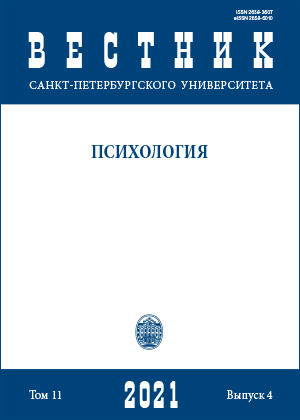Personal strength in the “VIA” model as a predictor of a teacher’s well-being in the professional sphere
DOI:
https://doi.org/10.21638/spbu16.2021.406Abstract
This article examines the “predictive model of personal well-being of a teacher in the professional sphere” developed by the authors based on a study conducted on a wide sample of teachers in the Russian Federation (N=7946). The presented model is based on the VIA (Values in Action) model, one of the key measures in the scientific direction of positive psychology. In the course of the study, 14 personal strengths out of 24 in the original model, which have the greatest multiplier effect of usefulness for personal well-being in the professional sphere of education were identified. Personal well-being in the professional sphere is described as a set of personal factors, including, first of all, high self-efficacy of the individual and the absence of professional burnout, and secondly, the individual’s general psychological well-being represented by life satisfaction and self-esteem. The authors believe that the resulting model can become an effective tool for the practical application of the concepts of positive psychology. On the one hand, it can be applied in the field of vocational guidance of young people. On the other hand, the model can be used as a tool for the development of professional competence of teachers in the field of personal well-being in the professional sphere, for example, in the form of selecting the most effective positive psychological interventions (PPI). The authors con clude that in the future, it is possible to scale the presented concept to other professional areas.
Keywords:
positive psychology, 24 personal strengths, psychological well-being of teachers, professional burnout, well-being in professional sphere
Downloads
References
References
Downloads
Published
How to Cite
Issue
Section
License
Articles of "Vestnik of Saint Petersburg University. Psychology" are open access distributed under the terms of the License Agreement with Saint Petersburg State University, which permits to the authors unrestricted distribution and self-archiving free of charge.




